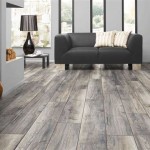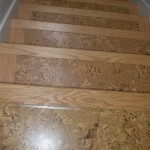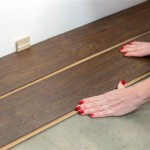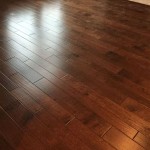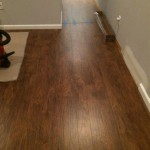Should Vinyl Flooring Be Glued Down?
Vinyl flooring has become increasingly popular due to its durability, affordability, and ease of installation. However, one question that often arises is whether or not vinyl flooring should be glued down. While gluing down vinyl flooring is not always necessary, there are certain situations where it is recommended to do so.
When to Glue Down Vinyl Flooring:
1. High-Traffic Areas: In areas that experience heavy foot traffic, such as kitchens, hallways, and commercial settings, gluing down vinyl flooring can help prevent shifting and buckling, ensuring its longevity.
2. Uneven Subfloors: If your subfloor is uneven, gluing down vinyl flooring can help create a smooth and level surface, minimizing the risk of tripping or damage to the flooring.
3. Large Rooms: In large rooms, glued-down vinyl flooring is less likely to expand or contract, reducing the likelihood of gaps or buckling at the seams.
4. Commercial Applications: In commercial settings, glued-down vinyl flooring is often required to meet building codes and ensure maximum durability under heavy use.
Benefits of Gluing Down Vinyl Flooring:
1. Improved Stability: Gluing down vinyl flooring provides additional stability, preventing it from shifting or moving underfoot.
2. Enhanced Durability: Glued-down vinyl flooring is less susceptible to wear and tear, resulting in a longer lifespan.
3. Reduced Maintenance: Since glued-down vinyl flooring is more firmly attached to the subfloor, it requires less maintenance and cleaning.
4. Increased Value: Gluing down vinyl flooring increases the overall value of your property, as it is considered a more permanent and durable flooring option.
When Not to Glue Down Vinyl Flooring:
1. Temporary Installations: If you plan on replacing the vinyl flooring in the near future, gluing it down is not necessary.
2. Certain Types of Vinyl: Some types of vinyl flooring, such as loose-lay and click-lock, are specifically designed to be installed without glue.
3. Floating Installations: In floating installations, the vinyl planks or tiles are not glued down but instead float over the subfloor, providing a cushion underfoot.
Conclusion:
Whether or not to glue down vinyl flooring depends on the specific requirements of your project. If you have high-traffic areas, uneven subfloors, large rooms, or commercial applications, gluing down vinyl flooring is generally recommended to ensure stability, durability, and longevity. However, for temporary installations or with specific types of vinyl flooring, gluing down may not be necessary.

Glue Down Vs Floating Lvp Which Is Better Whole Cabinet Supply

Post Nbl Express Eco Flooring

Floating Vinyl Plank Flooring Vs Glue Down 99cent Floor

Does Vinyl Flooring Need To Be Glued Down Thediyplan

Glue Down Vinyl Flooring Lifestepp

Luxury Vinyl Flooring Vs Glue Direct Wood

Glue Down Vs Floating Luxury Vinyl Flooring

Do I Need To Glue Vinyl Flooring

Flooring Installation Comparison Guide System Vs Glue Down Method Floorrich

How To Repair Luxury Vinyl Plank Flooring The Palette Muse
Related Posts

